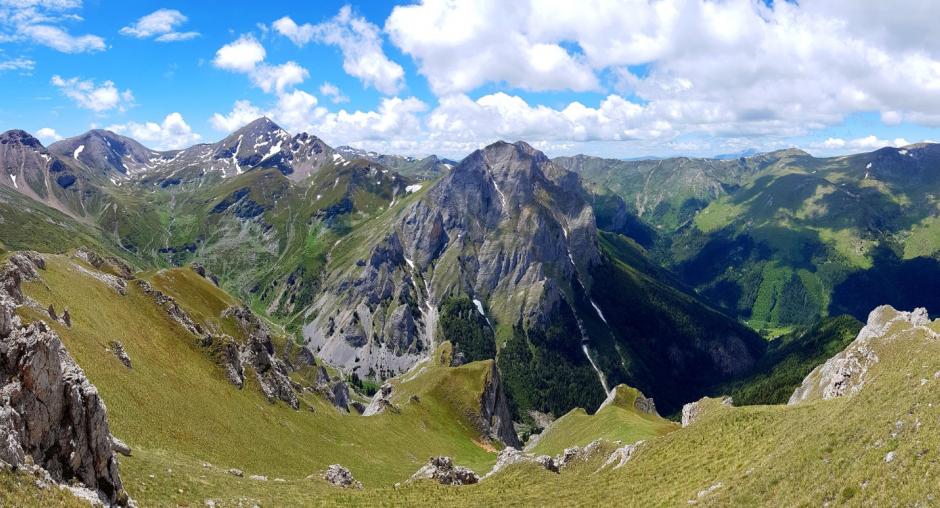Turning climate-related risks into opportunities for co-operation: a new OSCE-adelphi report on Shar/Šara Mountains and Korab Massif area

Forests play a variety of important roles in the fight against climate change. In the rich forest ecosystem of the Shar/Šara Mountains and Korab Massif area, the main climate-related security risks are linked to forest governance, according to a report published today by the OSCE and adelphi, a Berlin-based think tank, to mark International Day of Forests.
The Shar/Šara Mountains and Korab Massif area in South-Eastern Europe comprises four protected areas: Korab-Koritnik, Mavrovo, Shar Mountain, and Sharri/Šara. More than 100,000 people depend on these forest resources for their livelihoods. But deforestation, illegal logging and forest fires are threatening the area’s biodiversity and people’s livelihood security, which are being put at further risk by the impact of climate change.
“‘It’s about people’ is our motto for this year as we chair the OSCE, the world’s largest security organization, and addressing the impact of climate change is among our priorities,” said Ambassador Igor Djundev of North Macedonia on behalf of the country’s 2023 OSCE Chairpersonship. “Co-operation is essential to tackling climate change, and the OSCE’s work in Shar/Šara Mountains and Korab Massif area demonstrates the benefits of such co-operation.”
The report, Co-operation in the Shar/Šara Mountains and Korab Massif area: Scoping study on addressing shared climate-related security challenges and strengthening resilience, is one part of the OSCE’s active effort to support its participating States in implementing the 2021 OSCE Ministerial Council Decision on climate change.
“Climate change is a risk multiplier. It does not exist in isolation from insecurity and instability. The OSCE provides a platform for political dialogue and co-operation to address these multiple risks,” said Igli Hasani, Co-ordinator of the OSCE Economic and Environmental Activities. “The work in the Shar/Šara Mountains and Korab Massif area represents one of the first examples of tackling climate and security challenges in a shared biodiversity hotspot. We are grateful to all our project stakeholders, our donors as well as the OSCE Presence in Albania, OSCE Mission in Kosovo and the OSCE Mission to Skopje for making this happen”
The scoping study behind the report was designed to examine possible security risks related to climate change in the Shar/Šara Mountains and Korab Massif area and identify ways to address them. The study was carried out through a consultation process that brought together park management authorities, governmental agencies, municipalities, and local NGOs to discuss climate-related security risks and to develop a joint vision for this mountain region.
“Forest governance and local livelihoods are among the key areas where joint activities are needed to address climate-related security risks in the four protected areas,” said Beatrice Mosello, Senior Advisor at adelphi. “To this end, the consultation process we conducted highlighted the importance of establishing co-operation structures, as well as raising public awareness and strengthening the capacities of civil society on nature conservation and climate change adaptation in the Shar/ Šara Mountains and Korab Massif area.”
This report is prepared within the framework of the OSCE extra-budgetary project Strengthening responses to security risks from climate change in South-Eastern Europe, Eastern Europe, the South Caucasus, and Central Asia, which is implemented in partnership with adelphi and funded by Andorra, Austria, Czech Republic, Finland, France, Germany, Italy, Japan, Liechtenstein, Luxembourg, Norway, Poland, Sweden, and the United States.
